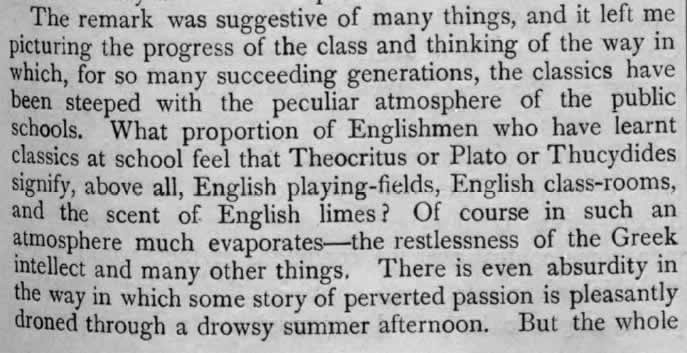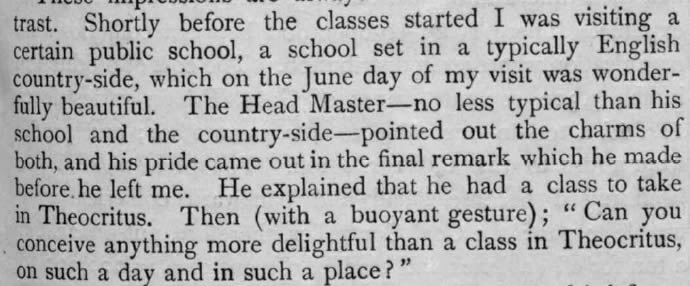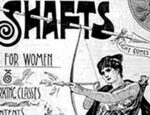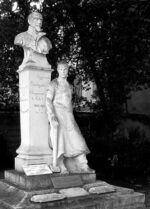Description
Meet ‘A.H.S’, a scholar writing in the Oxford Magazine. On March 5, 1920 he shared his experience of teaching a “little group of tired city clerks, telephone operators and mechanics in Camden Town” at the ‘Working Men’s College’, London. He taught his class Plato’s ‘Republic’ in an English translation, and Sophocles’ Oedipus Tyrannus also in translation, this time by ‘Professor Murray’.
A.H.S draws an interesting parallel between the experiences of classical texts received by schoolboys in a typical rural British public school and that of highly literate and intellectually engaged working men in central London. He describes how eagerly his students responded to the classical material. For further details please see the scanned text below.

The text continues:
“I have spoken of the curiosity of the men who came to the classes. I cannot help going back to the contrast with the public-school method. Delightful as may be the process of gradually absorbing classical learning permeated with the most English of English atmospheres, there is something to be said for the value of the sharp contact of comparatively mature minds with an unknown literature and civilisation. The excitement and zest of discovery is something for which it would not always be easy to find a parallel in the classical education of the average public-school boy.”
“In the actual study of the play there were some points of special interest. The reading of Professor Murray’s translation was the basis. But at intervals a few lines would be taken — say a strophe of a chorus — and we gave them what was a rather close examination. First there was the Greek to be read aloud, followed by a very literal translation. Then the class would be shown the actual order of the words in the Greek, and it would be pointed out how words calling up certain images were juxtaposed and so forth. The class obtained in this way some idea of the character of an inflectional language and the uses to which it could be put. Differences in the character of the language would be illustrated by comparison with Professor Murray’s translation…
Such a detailed treatment could not be continued for long stretches, but carried out at intervals, it gave, I think, a sense of contact with the original text which the class could not otherwise have gained. The contact points, so to speak, diffused their influence over the intervening stretches. I did not find that the class was wearied. In fact this was the kind of method which they seemed to desire. The possibilities of conveying really close impressions of the genius of an unknown language on those lines must be considerable, and they at least provide a field of very great interest for the teacher… I can at least reiterate the hope that before long the question of introducing the study of Greek translations in W. E. A. classes may be taken up with the seriousness which it deserves.”
Bibliographical reference: The Oxford Magazine (1920) v. 38 (05.03.1920) British Library shelfmark: P.P.6118.k.
n.b. around 1920







